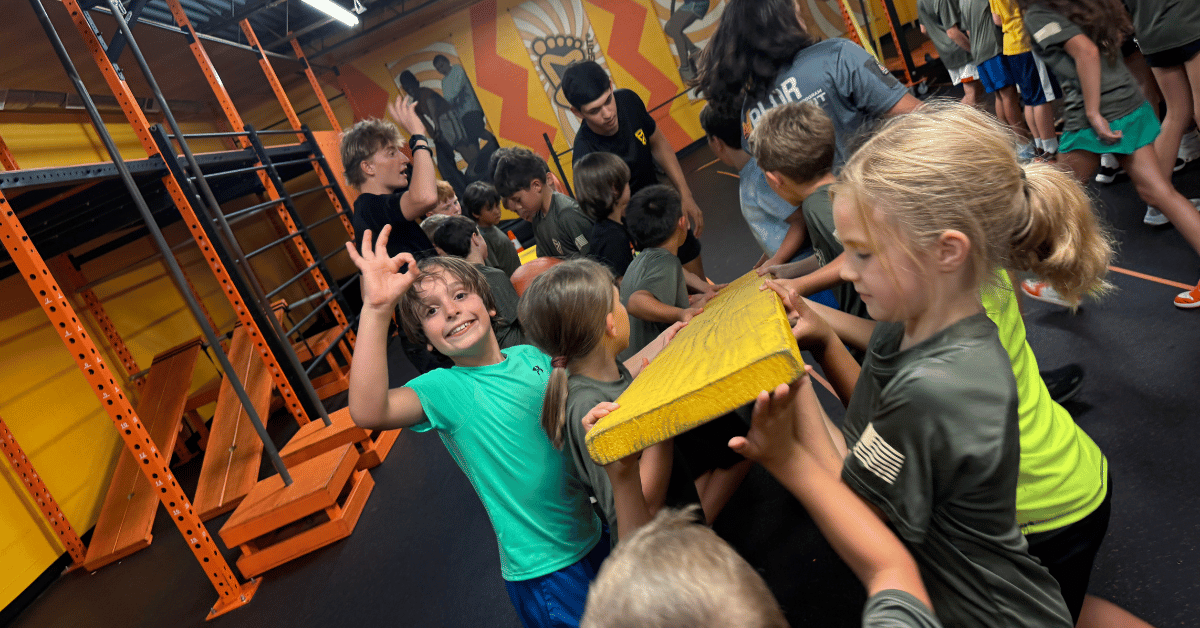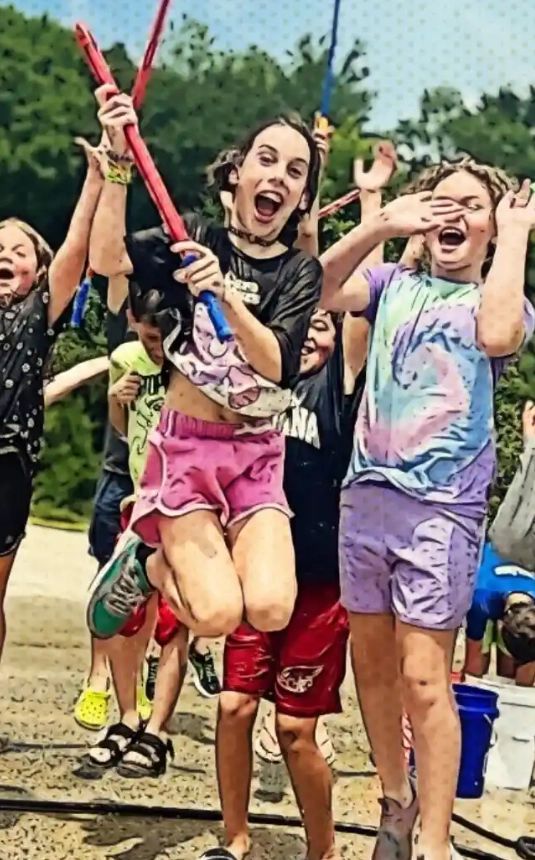Working well with others isn’t just a bonus skill anymore – it’s crucial for success. As someone who works closely with children, I’ve seen how learning teamwork can completely change how kids interact and set them up for future success. It’s exciting to see that U.S. students are already pretty good at working together, ranking 8th among 52 countries. At Mission Grit, we’re taking this natural talent and making it even better through our engaging kids teamwork classes in Charlotte, NC that help shape future leaders.
Also Read:
- Top 10 Birthday Party Venues for Kids in Charlotte, NC
- 6 Ways Mission Grit Can Help with Kids Sports
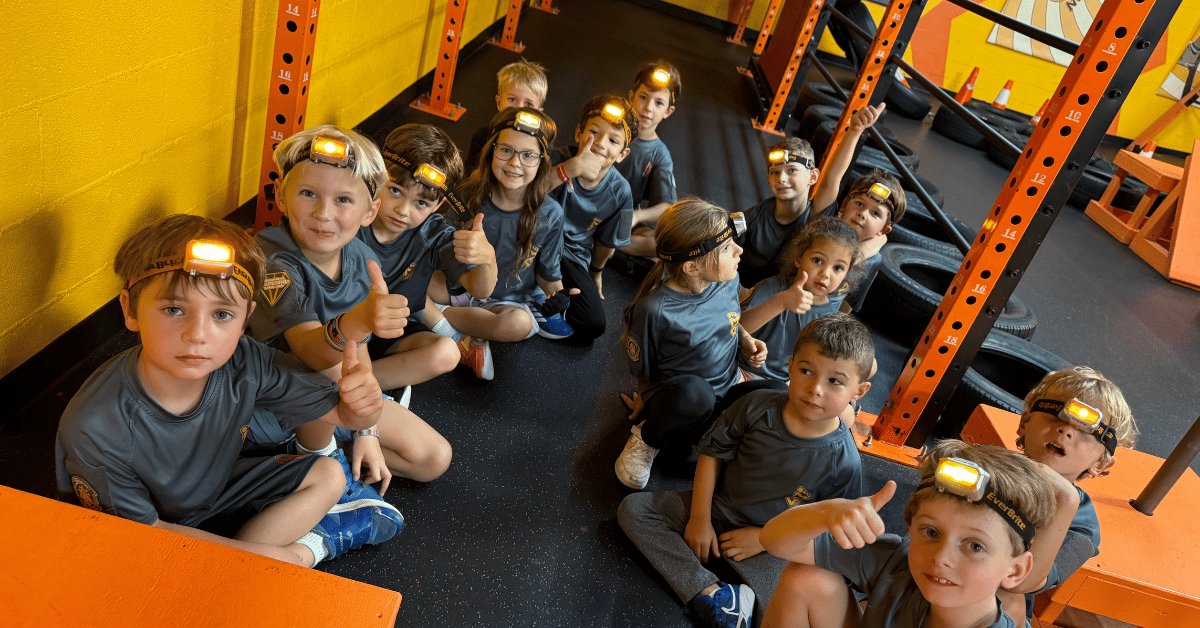
Why Teamwork is Essential for Children’s Development
You really can’t overstate how important teamwork is for kids growing up. The research backs this up – children who work together tend to form stronger friendships and do better in school. Here’s something interesting: kids who feel well-liked by their classmates score 9 points higher when working on group tasks. This shows just how much being accepted by peers matters when it comes to working well in teams.
When kids learn teamwork in a structured way, they pick up life skills that help them way beyond school. One fascinating finding is that girls tend to be better at collaboration, scoring 26 points higher than boys in the United States. This helps us create better lessons that work well for everyone.
These teamwork skills really matter in the real world. Kids learn how to handle tricky social situations, solve conflicts, and bounce back from challenges. This builds a strong foundation for their future, whether in school, work, or relationships. Research shows that students who focus on building relationships while working together do much better than those who just try to get the task done.
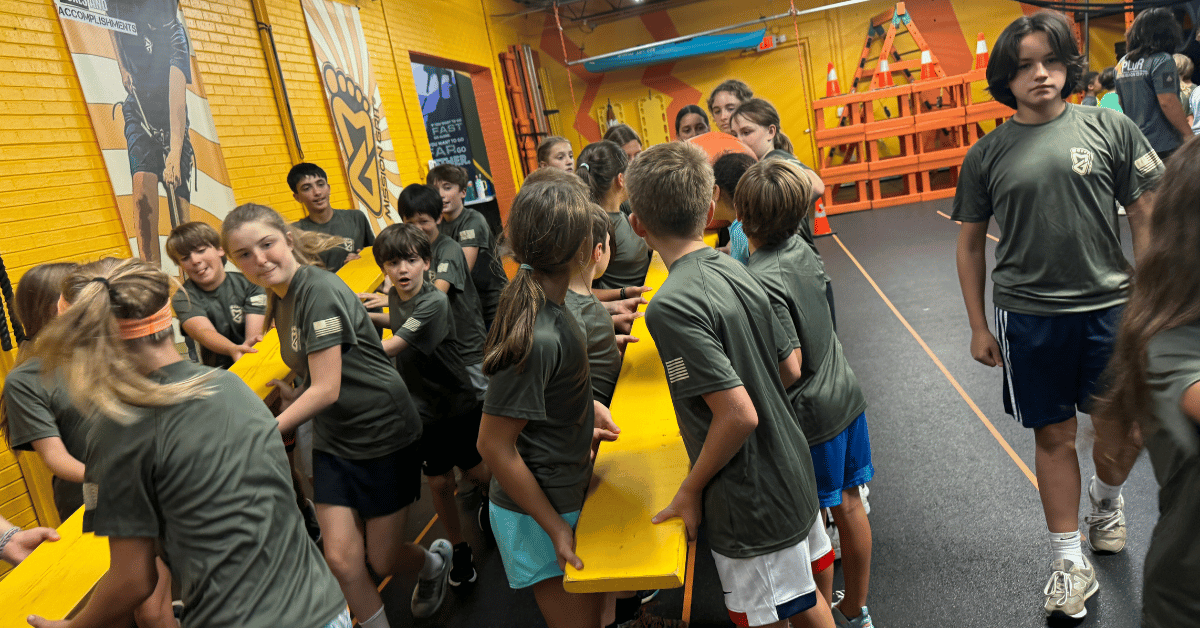
Key Skills Acquired in Teamwork Classes
I’ve seen amazing changes in kids when they learn to work together. Studies show that working in teams helps develop the soft skills that employers really want, which makes team activities in school super valuable for the future.
1. Communication Skills
During teamwork sessions, kids get better at talking and listening to others. They learn to share their ideas clearly and really hear what their classmates are saying. It’s amazing to see how children become more confident in speaking up and giving helpful feedback to their teammates.
2. Leadership and Responsibility
Team activities naturally give kids the opportunity to try being leaders. They discover their own leadership style and learn what it means to be responsible for the group’s performance. By letting different kids take turns leading, everyone gets to practice making decisions and delegating tasks.
3. Problem-Solving Abilities
When kids work together on challenges, they get really good at solving problems. They learn to come up with ideas together, think about different ways to solve things, and put their plans into action as a team. Working together shows them that getting different perspectives often leads to better solutions.
4. Emotional Intelligence
The emotional side of teamwork is huge. Through guided group activities, kids develop empathy and learn to better understand themselves and others. They learn to handle their own feelings while being mindful of their teammates’ emotions. These experiences help them build strong relationships later in life.
Popular Types of Kids’ Teamwork Activities
The best team activities for elementary students need to be fun and meaningful. Stanford research shows that students who work together stick with tasks 64% longer and get better results, which is why well-designed group activities are so important.
Engaging Icebreaker Activities
Name Game
The Name Game is a great way to start team-building with elementary students. Kids stand in a circle and make their names memorable by adding movements or describing words. It’s simple but really helps break the ice and creates a friendly space for more team activities.
Two Truths and a Lie
This fun icebreaker encourages kids to share personal stories while thinking critically. Each student shares three things about themselves, but one isn’t true. As others try to spot the lie, the students naturally become better observers and learn more about their classmates.
Indoor Team Building Exercises
Classroom Puzzle Task
This is one of our most effective team activities. We divide the kids into small groups and assign each team a different puzzle. The activity teaches them how to manage resources, communicate effectively, and think strategically while having fun.
Story Chain
In this creative exercise, kids work together to create a story. Each person adds to what others have said, building the story piece by piece. It helps develop creativity and shows kids how to build on others’ ideas.
Outdoor Team Building Adventures
Obstacle Course Challenge
Outdoor activities are great for physical and mental teamwork. In this challenge, teams guide their blindfolded teammates through a course using only their words. This builds trust and communication skills.
Group Treasure Hunt
This exciting activity mixes physical movement with problem-solving. Teams work together to follow clues and solve riddles to find hidden treasures. We can add school subjects to the hunt, making it both fun and educational.
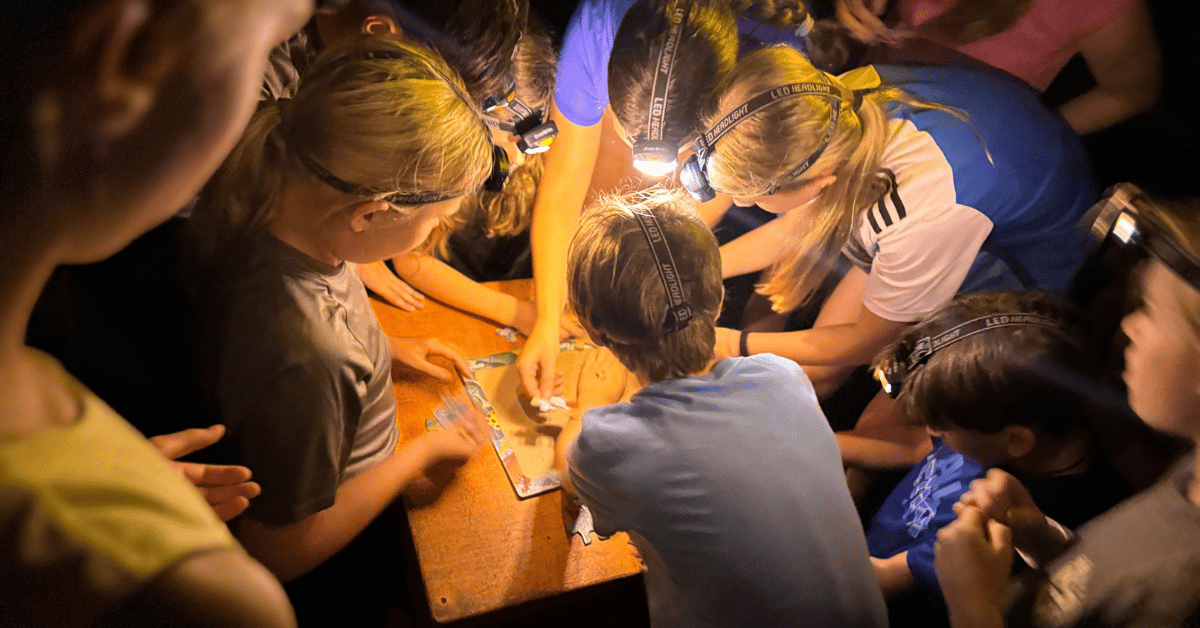
Essential Tips for Facilitating Successful Teamwork Sessions
Creating the right environment is key when teaching kids about teamwork. From my experience, good guidance can turn an okay session into an amazing learning experience.
1. Encouraging Mutual Respect and Inclusivity
A great teamwork session starts with making sure everyone respects each other. I always emphasize how important each team member’s contributions are. When every child feels valued and heard, regardless of their abilities or background, they’re more likely to participate actively and learn effectively.
2. Providing Clear Instructions and Goals
When teaching teamwork, being clear about what to do is super important. I make sure instructions are easy to understand, and goals are well-defined. Breaking bigger tasks into smaller steps helps kids know exactly what they need to do and how they can help their team succeed.
3. Fostering an Environment of Open Feedback
For teamwork to really work, kids need to feel safe sharing their thoughts. I encourage students to share their ideas in helpful ways and teach them how to give and receive feedback respectfully. This helps them become better communicators and more confident in sharing their views.
4. Celebrating Achievements and Progress
Recognizing success is really important in building good teamwork habits. During each session, I make sure to notice both individual efforts and team achievements. We celebrate not just the end results but also the progress made along the way, which keeps kids motivated and eager to improve.
Conclusion
Working with kids over the years, I’ve seen how powerful structured team activities can be. Watching children grow from working alone to being great team players is incredible, and they gain skills that help them throughout their lives.
Teamwork classes do so much more than teach kids to work together. They help children become better communicators, develop leadership skills, and learn to solve problems while becoming more emotionally aware. These skills create a strong foundation for whatever they choose to do in life.
It’s amazing to see how working together changes how kids approach challenges. They not only get better results but also become more resilient, understanding, and adaptable – qualities that are so important in today’s connected world.
As we help prepare kids for their future, getting them involved in quality teamwork experiences early on is crucial. Through well-planned activities and supportive guidance, we’re not just teaching cooperation – we’re helping create confident, capable individuals ready for any challenge.
Frequently Asked Questions About Kids Teamwork Classes
What Age is Appropriate for Kids to Begin Teamwork Classes?
Kids can start learning teamwork as early as preschool, with activities that match their age and development. Young children might start with simple sharing games, while older kids can handle more complex challenges.
How Can Parents Support Their Children’s Teamwork Skills at Home?
Parents can help build teamwork skills through everyday activities at home. Try cooking together, working on family projects, or organizing simple team games with siblings or friends. Creating opportunities for kids to solve problems and make decisions together helps them practice these important skills in a comfortable setting.
What Are Some Common Challenges Faced in Teamwork Activities?
When running team activities, we often see challenges like managing strong personalities, making sure everyone participates equally, and helping shy kids find their voice. The key is to set clear guidelines early on and create an environment where every child feels valued and comfortable participating.

